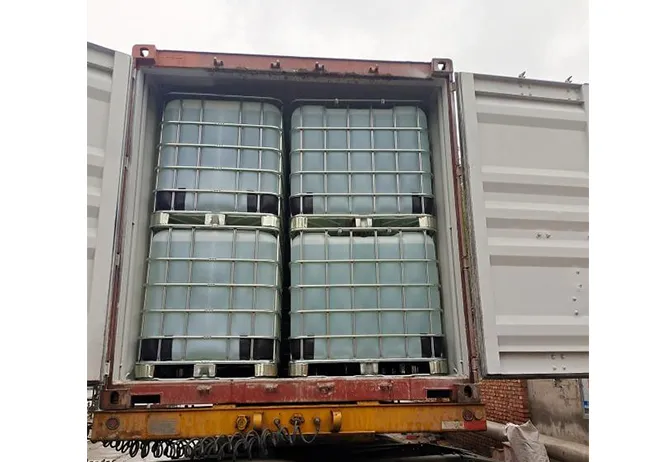
hplc solvents
The Importance of Solvents in HPLC Selection, Types, and Applications
High-Performance Liquid Chromatography (HPLC) is a highly efficient analytical technique used widely in laboratories for the separation, identification, and quantification of compounds in a mixture. One of the critical components in HPLC is the solvent, often referred to as the mobile phase. The choice of solvent is paramount as it directly impacts the separation efficiency, resolution, and sensitivity of the analysis.
Types of Solvents Used in HPLC
Solvents used in HPLC are typically categorized into two main classes polar and non-polar solvents. The physical and chemical properties of these solvents influence the behavior of analytes during the separation process.
1. Polar Solvents These solvents have a significant dipole moment, enabling them to dissolve polar substances effectively. Common polar solvents for HPLC include water, methanol, acetonitrile, and ethanol. Water and acetonitrile are often favored for their ability to interact with a wide range of compounds, making them versatile choices in gradient elution processes.
2. Non-Polar Solvents Non-polar solvents, such as hexane or chloroform, are used for the analysis of non-polar compounds. They are generally less effective in separating polar substances but can be essential in extracting non-polar analytes from more complex mixtures.
3. Mixed Solvent Systems In many cases, a combination of solvents is employed to achieve optimal separation conditions. For instance, using a binary or ternary solvent mixture can fine-tune the polarity, viscosity, and boiling point of the mobile phase, thus enhancing resolution and peak shape.
Solvent Selection Key Considerations
Choosing the right solvent for HPLC involves several factors
- Polarity The polarity of the solvent must align with the polarity of the analytes. Understanding the chemical nature of both the sample and the stationary phase is crucial for achieving optimal separation.
- Viscosity High-viscosity solvents can lead to reduced flow rates and increased pressure in the HPLC system. It is essential to select solvents that maintain an appropriate viscosity under the operating conditions.
hplc solvents

- Compatibility with Detectors Certain solvents absorb UV light, which can interfere with detection when UV spectroscopy is employed. Therefore, selecting solvents with minimal absorbance at the detection wavelength is important.
- Solubility The solvent must dissolve the analyte effectively to produce a clear and concentrated solution. Poor solubility can lead to issues with peak clarity and quantitative analysis.
- Environmental Impact and Safety The choice of solvent should also take into account safety and environmental considerations. Solvents that are less harmful or more environmentally friendly are encouraged to minimize hazardous waste.
Applications of Solvents in HPLC
The selection of solvents directly affects the outcomes in various applications of HPLC, including
- Pharmaceutical Analysis In the pharmaceutical industry, HPLC is used for drug formulation and stability studies. Polar solvents like acetonitrile are often used to analyze active pharmaceutical ingredients due to their efficiency in dissolving and separating complex compounds.
- Environmental Testing HPLC plays a key role in analyzing pollutants and contaminants in water and soil samples. Solvents that can extract non-polar compounds (like pesticides) are utilized alongside polar solvents for more comprehensive analyses.
- Food and Beverage Industry In food safety and quality control, HPLC is employed to detect additives, preservatives, and flavor components. Solvent selection can significantly influence the detection of such compounds, making it crucial for maintaining product safety standards.
- Biotechnology and Life Sciences HPLC is essential for purifying proteins, peptides, and nucleic acids. The choice of solvent can affect the separation of biomolecules, emphasizing the importance of using compatible solvents.
Conclusion
In conclusion, the selection of solvents in HPLC is a critical step that can significantly impact the effectiveness and accuracy of the separation process. A thorough understanding of solvent properties, applications, and the interactions between solvents and analytes is essential for analytical chemists. As HPLC continues to evolve, the development of novel solvents and solvent systems will pave the way for more innovative and efficient analytical techniques in various fields including pharmaceuticals, environmental science, food safety, and biotechnology.
-
Understanding Synthetic Rubber OptionsNewsApr.27,2025
-
Trichloroisocyanuric Acid: Essential for Clean and Safe WaterNewsApr.27,2025
-
Sodium Dichloroisocyanurate: Key to Safe Water TreatmentNewsApr.27,2025
-
Sodium Acid Pyrophosphate: Essential in Modern Food ProcessingNewsApr.27,2025
-
Essential Water Treatment ChemicalsNewsApr.27,2025
-
Denatured Alcohol and Its Industrial UsesNewsApr.27,2025
-
The Versatile Uses of Sodium BicarbonateNewsApr.24,2025
Hebei Tenger Chemical Technology Co., Ltd. focuses on the chemical industry and is committed to the export service of chemical raw materials.
-

view more DiethanolisopropanolamineIn the ever-growing field of chemical solutions, diethanolisopropanolamine (DEIPA) stands out as a versatile and important compound. Due to its unique chemical structure and properties, DEIPA is of interest to various industries including construction, personal care, and agriculture. -

view more TriisopropanolamineTriisopropanolamine (TIPA) alkanol amine substance, is a kind of alcohol amine compound with amino and alcohol hydroxyl, and because of its molecules contains both amino and hydroxyl. -

view more Tetramethyl Thiuram DisulfideTetramethyl thiuram disulfide, also known as TMTD, is a white to light-yellow powder with a distinct sulfur-like odor. It is soluble in organic solvents such as benzene, acetone, and ethyl acetate, making it highly versatile for use in different formulations. TMTD is known for its excellent vulcanization acceleration properties, which makes it a key ingredient in the production of rubber products. Additionally, it acts as an effective fungicide and bactericide, making it valuable in agricultural applications. Its high purity and stability ensure consistent performance, making it a preferred choice for manufacturers across various industries.











